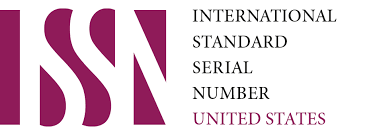Impact Of Blockchain Technologies On State And Municipal Services: International Experience And Adaptation Prospects
DOI:
https://doi.org/10.62480/tjet.2025.vol46.pp10-14Keywords:
blockchain, public services, digital governanceAbstract
In the context of rapid digitalization of public administration, increasing attention is being paid to innovative technologies that can ensure transparency, security, and efficiency in the delivery of public services. One of the most promising technologies is blockchain, which possesses unique characteristics such as decentralized architecture, immutability of data, a high level of trust, and robust information security. This paper explores the international experience of implementing blockchain-based solutions in government and municipal services, using the cases of Estonia, Georgia, the United Arab Emirates, Sweden, and Brazil. The study analyzes the main application areas of the technology, including land and civil registries, e-voting, management of social benefits, and public budget oversight. Particular attention is given to the prospects for adapting these practices in transition economies. The findings underscore the strategic importance of blockchain as a tool for enhancing the effectiveness of public governance, strengthening citizen trust, and optimizing administrative processes. The results can be used in the formulation of national digital strategies in countries with a similar level of digital maturity.
References
1. World Bank. (2021). Blockchain for Government: Opportunities and Challenges. Washington, DC.
2. OECD. (2020). The Potential of Blockchain for Public Sector. Paris: OECD Publishing.
3. UNDP. (2022). Digital Transformation and Governance. New York: United Nations Development
Programme.
4. Estonian Information System Authority. (2023). e-Governance in Estonia. Retrieved from https://eestonia.com
5. Bitfury Group. (2017). Blockchain for Land Titling in Georgia. Technical Report.
6. Smart Dubai Government. (2021). Blockchain Strategy Implementation Progress Report
7. SFS - Swedish Mapping, Cadastral and Land Registration Authority. (2019). Blockchain in Land
Transactions.
8. Government of Brazil. (2020). Public Procurement and Transparency Initiatives.
9. Nakamoto, S. (2008). Bitcoin: A Peer-to-Peer Electronic Cash System.
Downloads
Published
Issue
Section
License

This work is licensed under a Creative Commons Attribution-NonCommercial 4.0 International License.
User Rights
Under the Creative Commons Attribution-NonCommercial 4.0 International (CC-BY-NC), the author (s) and users are free to share (copy, distribute and transmit the contribution).
Rights of Authors
Authors retain the following rights:
1. Copyright and other proprietary rights relating to the article, such as patent rights,
2. the right to use the substance of the article in future works, including lectures and books,
3. the right to reproduce the article for own purposes, provided the copies are not offered for sale,
4. the right to self-archive the article.












